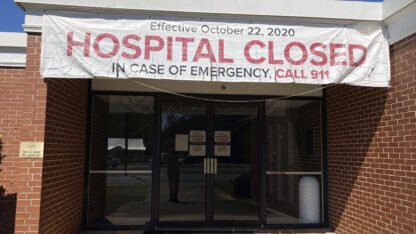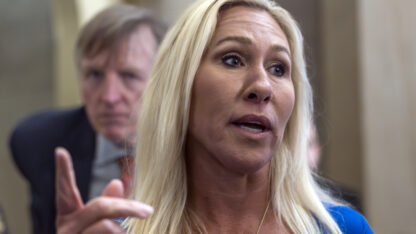Four things to watch during Georgia's 2024 legislative session
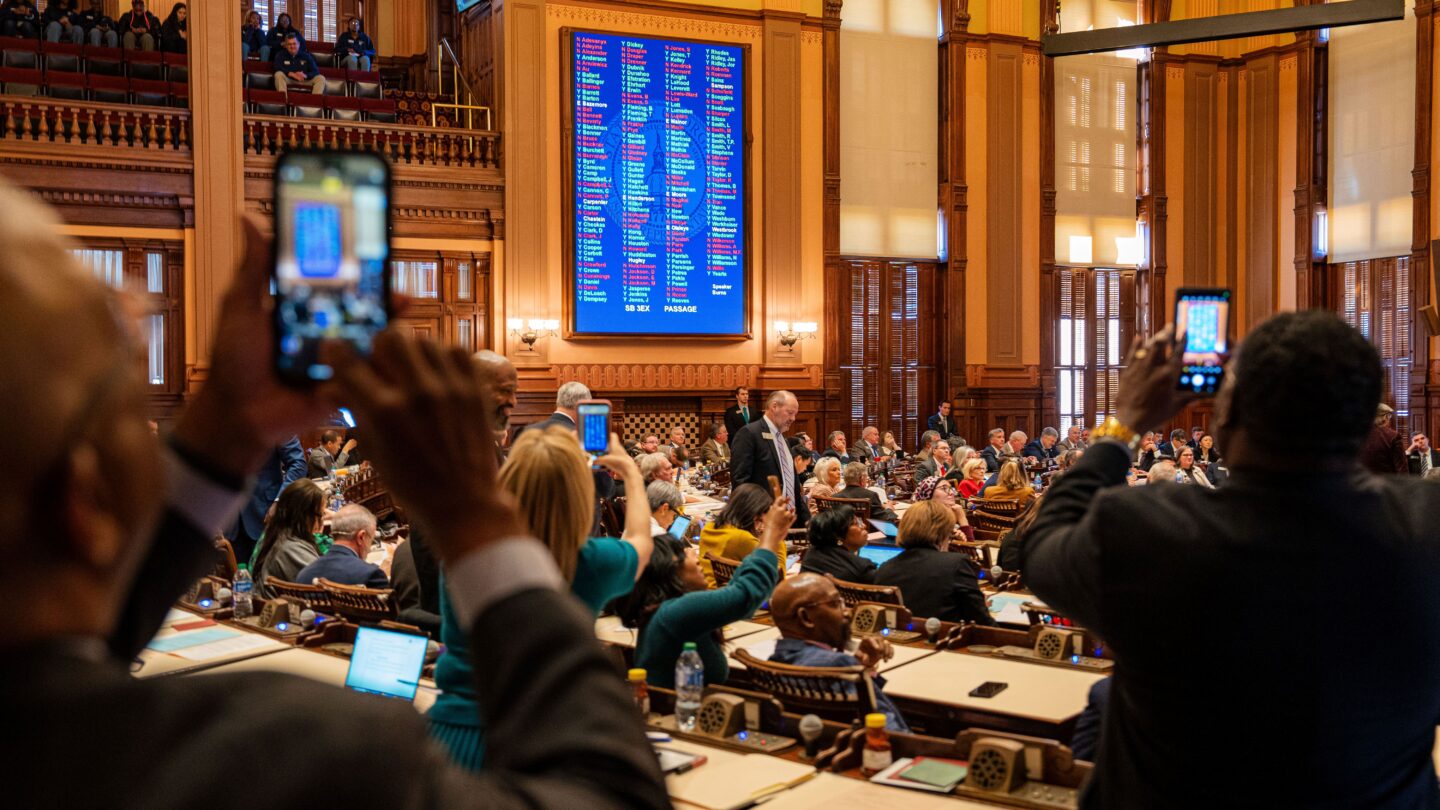
The legislative chambers have been cleaned and sanitized. New nameplates have been attached to desks and the microphones have all been tested. The Georgia Capitol is ready for the return of 236 lawmakers, their staff, lobbyists and journalists for the start of another 40-day session on Monday.
But unlike many years, the House and Senate floors have not sat empty for months. Only a few weeks ago, lawmakers convened for a special session to redraw Georgia’s political maps after a federal judge found they violated the Voting Rights Act.
That session left Democrats discouraged, after Republicans maneuvered to preserve their partisan advantage while still creating the new, majority-Black districts ordered by the court.
This session, Republican leaders say they want to help minimize pressure on people’s pocketbooks by accelerating an income tax cut and providing bonuses to state employees, like teachers.
Democrats hope to find room to advance some of their priorities too, like expanding healthcare access.
This session will gavel in just two months ahead of Georgia’s presidential primary. Down the street at the Fulton County Courthouse, the wrangling continues over scheduling a trial date for former President Trump and more than a dozen other defendants in a sweeping election interference case.
Here are four things to watch this legislative session.
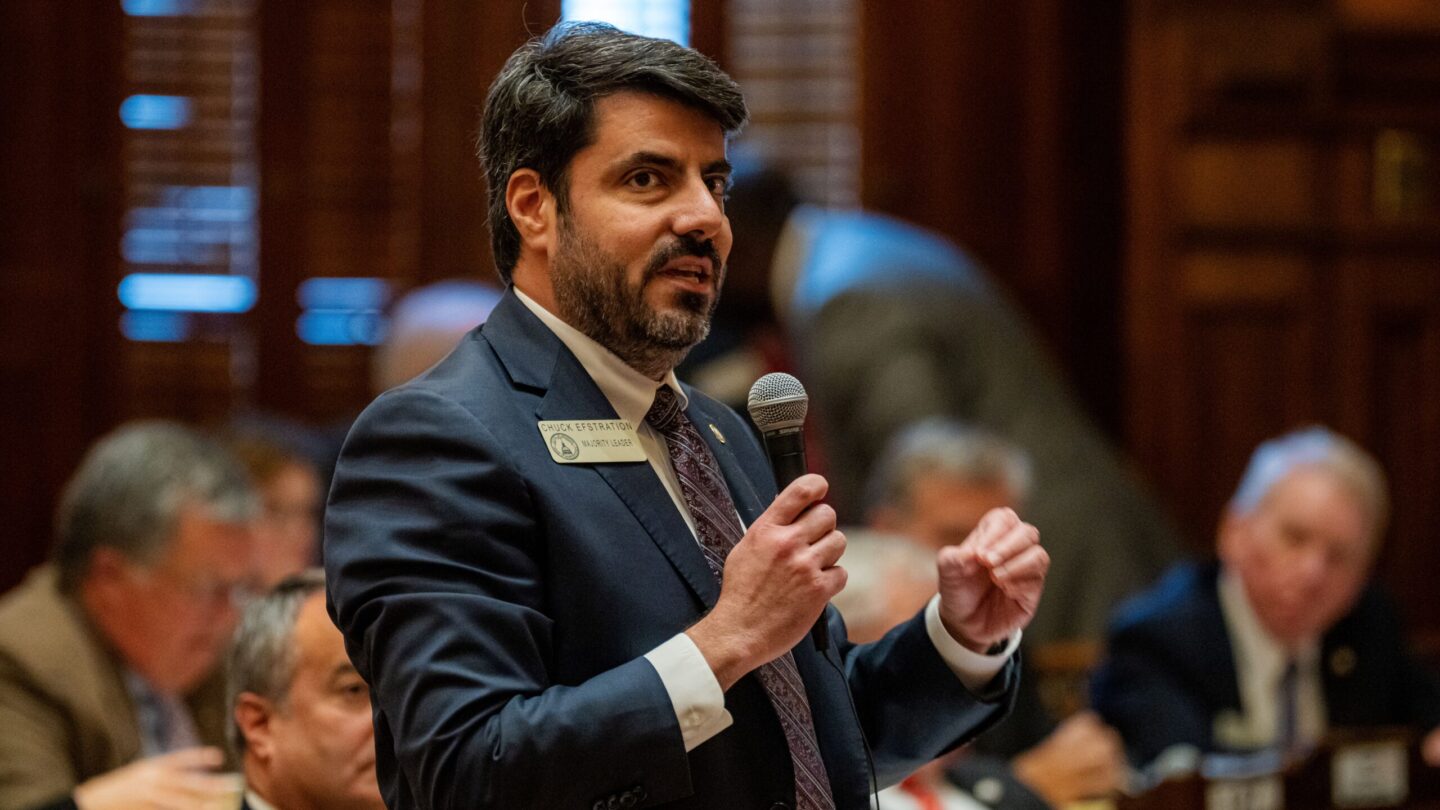
- How will lawmakers tie up unfinished business?
Last session may have been characterized more by what did not pass than what did.
But because Georgia is technically in the middle of a two-year session, bills that didn’t make it to the governor’s desk still have a chance to become law without starting the legislative process over again.
Several high-profile bills that passed one chamber stalled across the hall before Sine Die.
Despite clearing the House, bills to codify a definition of antisemitism and enact some basic protections for renters failed to pass the Senate.
“I’m optimistic on both of these issues,” says House Majority Leader Chuck Efstration. “I think there has been significant public attention in both of these areas, and I’m very hopeful that we’ll see action from the state Senate.”
The Senate also did not pass a House-approved mental health care bill and a proposal to legalize online sports betting. And on the House side, a Senate-backed school voucher program narrowly failed in a dramatic vote. All these bills could come back up for debate this year.
Read more about what passed and what didn’t last session with the WABE 2023 Gold Dome Bill Tracker.

2. Can Democrats exploit cracks in GOP unity?
Republicans dominate the Georgia legislature. But when the GOP is not on the same page, Democrats see opportunities to wield their numbers to shape legislation.
Take that proposal to provide a $6,500 voucher per year for students in underperforming public schools to enroll in a private school.
Democrats banded together with mostly-rural Republicans to defeat the measure. Can they do it again?
“I think that really the question is where the votes will come down,” says Efstration. “Is there going to be legislative support for passage in that area? And I don’t know the answer to that question right now.”
While Democrats may be in a position to stymy legislation they don’t like, they cannot muscle through their own bills without bipartisan support. But Democrats also see openings this session for compromise on some of their long-standing priorities.
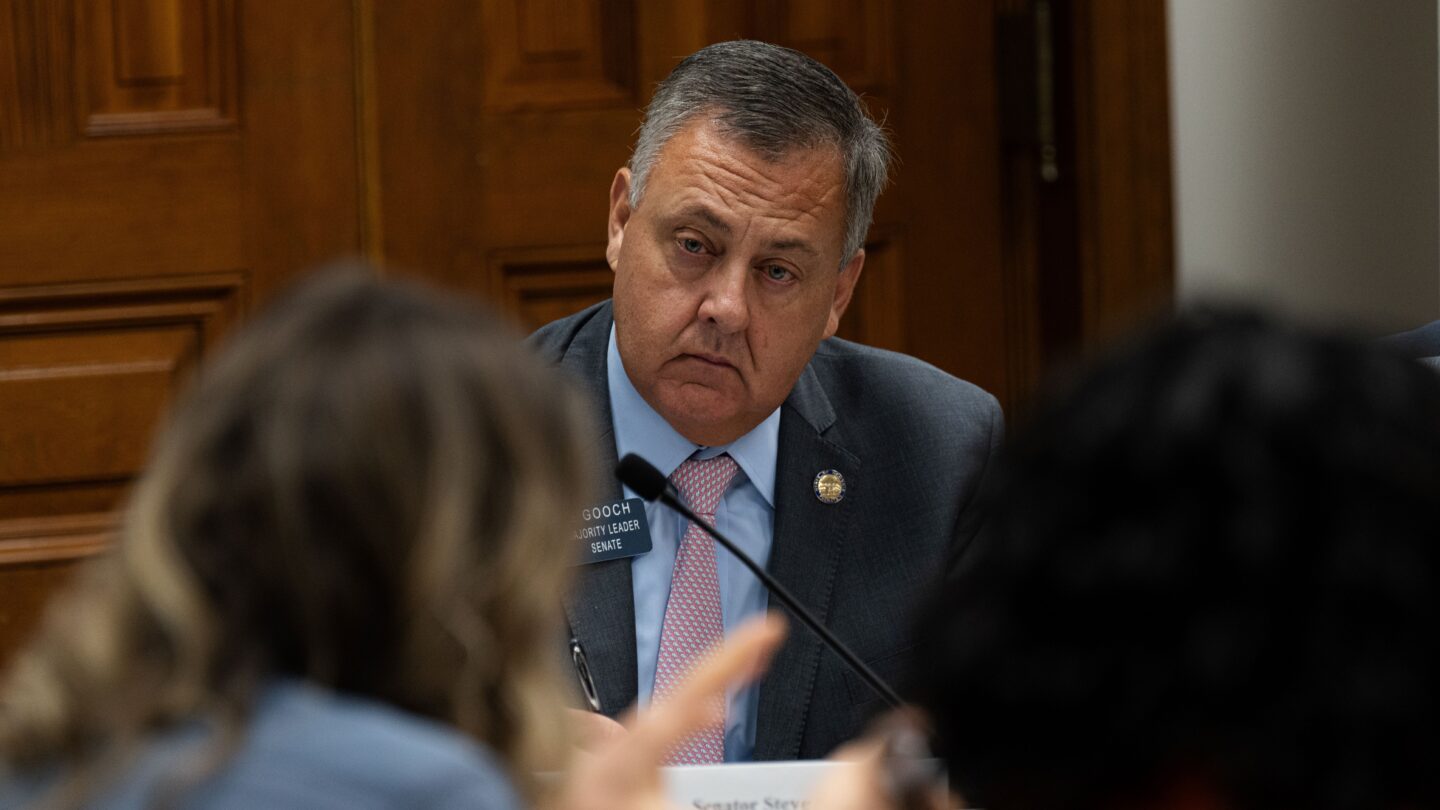
3. Can the legislature find common ground on some contested issues?
Democrats hope to finally advance a longstanding dream – more fully expanding Medicaid under the Affordable Care Act. Georgia is one of only a handful of states that has not done so.
But this session, chatter is growing about a potential deal to expand coverage in exchange for reforming hospital regulations known as Certificate of Need.
“That word Medicaid expansion is toxic in a lot of ways,” says Senate Majority Leader Steve Gooch. “It just depends on the details.”
Gooch says Republicans may be open to a model similar to Arkansas, which extends coverage to uninsured adults making up to 138% of the federal poverty level. But instead of Medicaid paying medical bills directly, the funding would allow beneficiaries to purchase coverage on the private market.
“There’s time to get it done in this session if that’s what the desire is,” Gooch says.
“I think something has shifted really in the past year,” says Democratic Rep. Michelle Au, an anesthesiologist. “I think that we have to be willing to look at a lot of different models. And anything that gets us as close to doing the most amount of good as possible is what we should aim to do.”
Au also sees room for compromise around her push to encourage safe firearms storage around children. Recently, the group Georgia Second Amendment expressed openness to Au’s bill providing a $300 tax credit for purchasing a gun safe.
“I think this is a state where the leadership is maybe more open to forming these bipartisan relationships in order to get things done and I’m hoping that this pallet of bills can be part of that spirit of cooperation,” Au says.
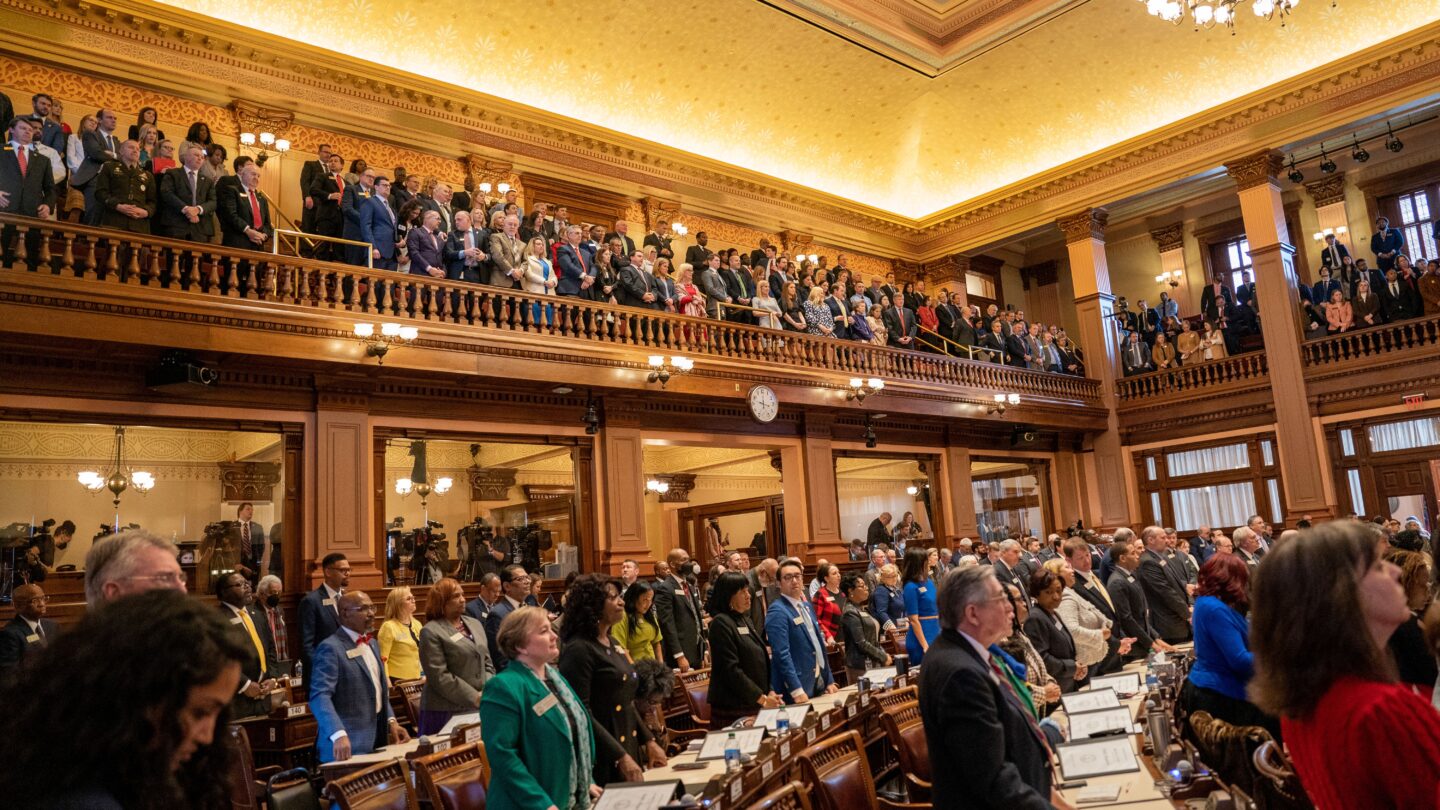
4. How will the 2024 election shape the legislative session – and what surprises are in store?
Still, 2024 is an election year. And while no statewide offices are up for election, every member of the Georgia House and Senate will be on the ballot – and some may be facing primary challenges.
That can be an incentive to pass legislation designed to shore up base voters and stave off challenges from the right. In some cases, politicians may jockey ahead of future elections in 2026.
“You better not wait until 60 days before a primary to start trying to pass important pieces of legislation,” Gooch says. “You better listen to your constituents year-round, every year or else you’ll probably be primaried anyway regardless of what you do in the last 90 days.”
While neither abortion or voting law changes are being touted as topline priorities for Republican leadership, any lawmaker can propose legislation with the potential to gain traction.
Republicans have so far refrained from passing new abortion legislation since Georgia’s roughly six-week ban on abortion with very limited exceptions took effect in 2022. The Georgia courts are still weighing the legality of the law.
“We’ve taken the position that we will wait for the courts to rule before we make any other decisions going forward,” Gooch says.
Last session, a bill to restrict abortion medication being sent through the mail did not advance, but could come back up again.
Since the 2020 election, Republican lawmakers have regularly passed changes to election law, beginning with a sweeping overhaul in 2021. Lawmakers this year could consider everything from the future of Georgia’s runoff system to efforts to restrict voting by absentee ballot or curb Georgia’s use of electronic voting machines.
Gooch says constituents in many districts are still raising concerns about election integrity. That’s despite multiple recounts, audits and investigations showing there was no widespread election fraud in 2020.
“So there are certain districts in the state that may not have as many concerns as others,” Gooch says. “But it’s important we listen to the citizens, that’s who we work for.”
And of course, any number of surprise topics could crop up.
“It’s almost dangerous for me to try to predict what major issues will take place during a session because you’ll just see how wrong I am later when things develop and new issues and ideas come about,” Efstration says.

